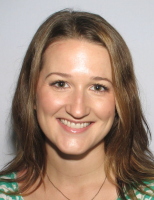 1. Researchers’ names: Doctoral Students Tracy Raulston, PI (tracyr@uoregon.edu), Sarah Hansen & Angus Kittleman; Faculty Advisor Wendy Machalicek (wmachali@uoregon.edu)
1. Researchers’ names: Doctoral Students Tracy Raulston, PI (tracyr@uoregon.edu), Sarah Hansen & Angus Kittleman; Faculty Advisor Wendy Machalicek (wmachali@uoregon.edu)
2. Study Title: Effects of Simulated Play Date on Parent Use of Strategies to Promote Social Skills in Children with Autism
3. Phase of study: Recruitment, follow-up, and data analysis as of Fall 2015.
4. Population or age group:Triads including children ages 3-7 with autism spectrum disorder (ASD), their parent, and a typically-developing peer.
5. Summary:This study employs a non-concurrent multiple baseline single case design to train parents of children with autism to uses strategies to promote social skills during a simulated play date. The intervention package consists of strategies to prevent challenging behavior (e.g., social story, visual supports), specific techniques (environmental arrangement and prompting) to increase turn taking and language during game play with a peer, and strategies to reinforce appropriate social skills. Generalization to the home setting is assessed to evaluate the efficacy of this clinic-based, simulated approach
6. Opportunity for Participation: Actively recruiting participants through the Pearl Duck Autism Center (PDAC). Email Tracy Raulston at tracyr@uoregon.edu for more information.

